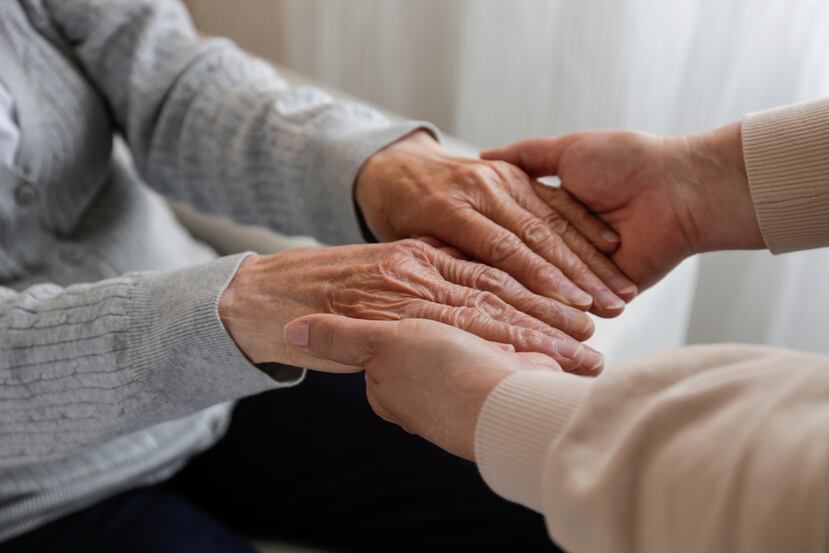
A testimony gathered by El Nuevo Día reports on the sacrificing work undertaken by family members when caring for relatives with health problems
A testimony gathered by El Nuevo Día reports on the sacrificing work undertaken by family members when caring for relatives with health problems
June 22, 2024 - 4:20 PM


Cathy Negrón’s wish was to care for her mother until her death. But when her mother’s behavior began to change, the picture changed.
---
Lee este artículo en español.
---
“We began to notice a drop in her mental and emotional state. Looking for a diagnosis was uphill, until a neuropsychologist did some studies, which the psychiatrists confirmed. It is dementia, but not senile dementia, similar to Lewy body dementia, where her brain shuts down,” said the 68-year-old woman of her mother’s diagnosis.
Together, with one of her sisters and a granddaughter, they took on the task of caring for their mother, now 90 years old.
“It was difficult. The granddaughter was the close caregiver because she lived with her. And my sister and I would split (the care), one day her and one day me,” recounted the San Juan resident.
However, the mother, then an octogenarian, had two mental episodes that required her family to admit her to Hospital San Juan Capestrano, a medical facility for mental health patients.

“She wouldn’t let us, her family, handle it. It was uphill for her to take her medications and talk to her doctors,” she recalled.
Concerned, Negrón spoke with her pastor and the advice of the religious man and others close to her was that her mother needed to be under a routine that would reassure her and watch over her treatment.
“She would run away from us, hide her keys, scream that I was hitting her and mistreating her, that they should call the police. All that made us think that she needed that (external) help, beyond my desire to continue taking care of her, because obviously I didn’t have the capacity to do it,” she commented.
The straw that broke the camel’s back was when the granddaughter who was helping in her care got married and moved out, since her mother could not live alone.
“Neglect is not just leaving them in the hospital, it is allowing them to go to medical appointments alone. Leaving them there and not asking the doctor what’s wrong with them, what’s happening to them ”
“Since neither my sister nor I had guardianship of her, I had to go to court to ask to put her in a long term care facility, because she wouldn’t go by herself,” Negrón said, noting that since the end of 2022, her mother has been living in a Home for mental health patients.
“She is calmer. We see her well cared for,” she said of the woman who was also diagnosed with bipolarity.
The family would have liked to continue caring for her, she said. But, in addition to lacking the tools to do so, the health of her and her two siblings - all older adults - was already taking its toll.
The easiest thing, she said, would have been to abandon her mother, but that didn’t cross her or the rest of the family’s minds.
“Abandonment is not just leaving them in the hospital, it is allowing them to go to medical appointments alone. To leave them there and not ask the doctor what they have, what is happening to them,” she lamented, after noting that she frequently visits her mother at the facility where she lives.
She added that, many times, older adults do not want to leave their home and environment, but they can no longer live alone and there is no one to take care of them or know how, especially if they are mental health patients.
A study conducted last year by the Escuela de Cuidadores (School of Caregivers) of the Pontificia Universidad Católica de Puerto Rico found that the average age of informal caregivers of older adults was 78 years old. Half (50%) of them had physical conditions and 10% suffered from mental health problems.
Among the 1,177 participants in the analysis, which also included data from Mexico and Colombia, there was a high percentage of caregivers with depression and anxiety, as well as worries, changes in their sleep patterns and low energy.
---
Las noticias explicadas de forma sencilla y directa para entender lo más importante del día.


Te invitamos a descargar cualquiera de estos navegadores para ver nuestras noticias: